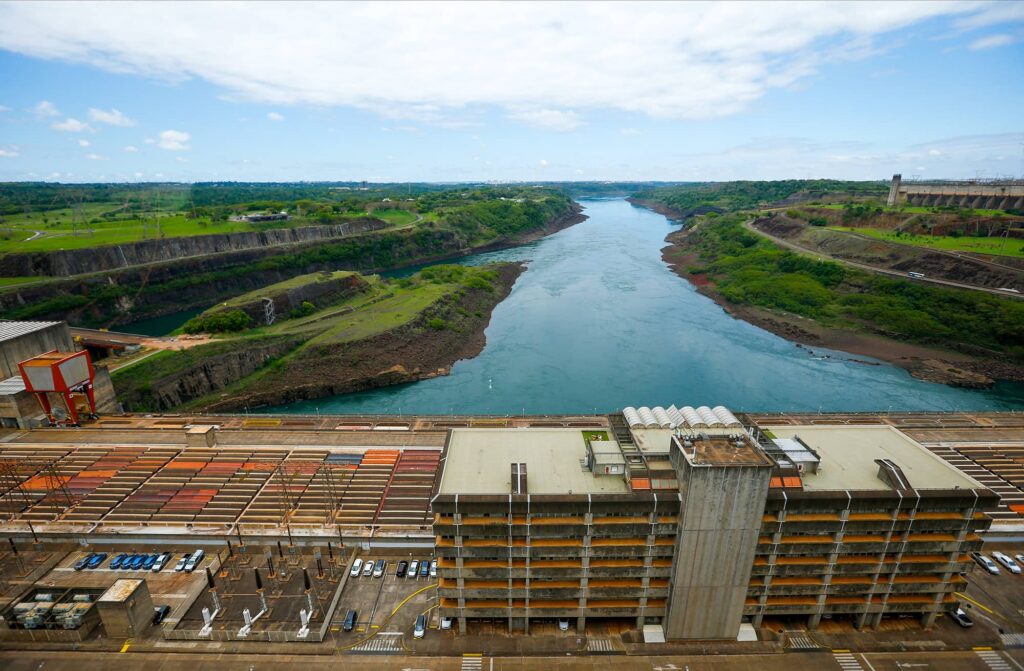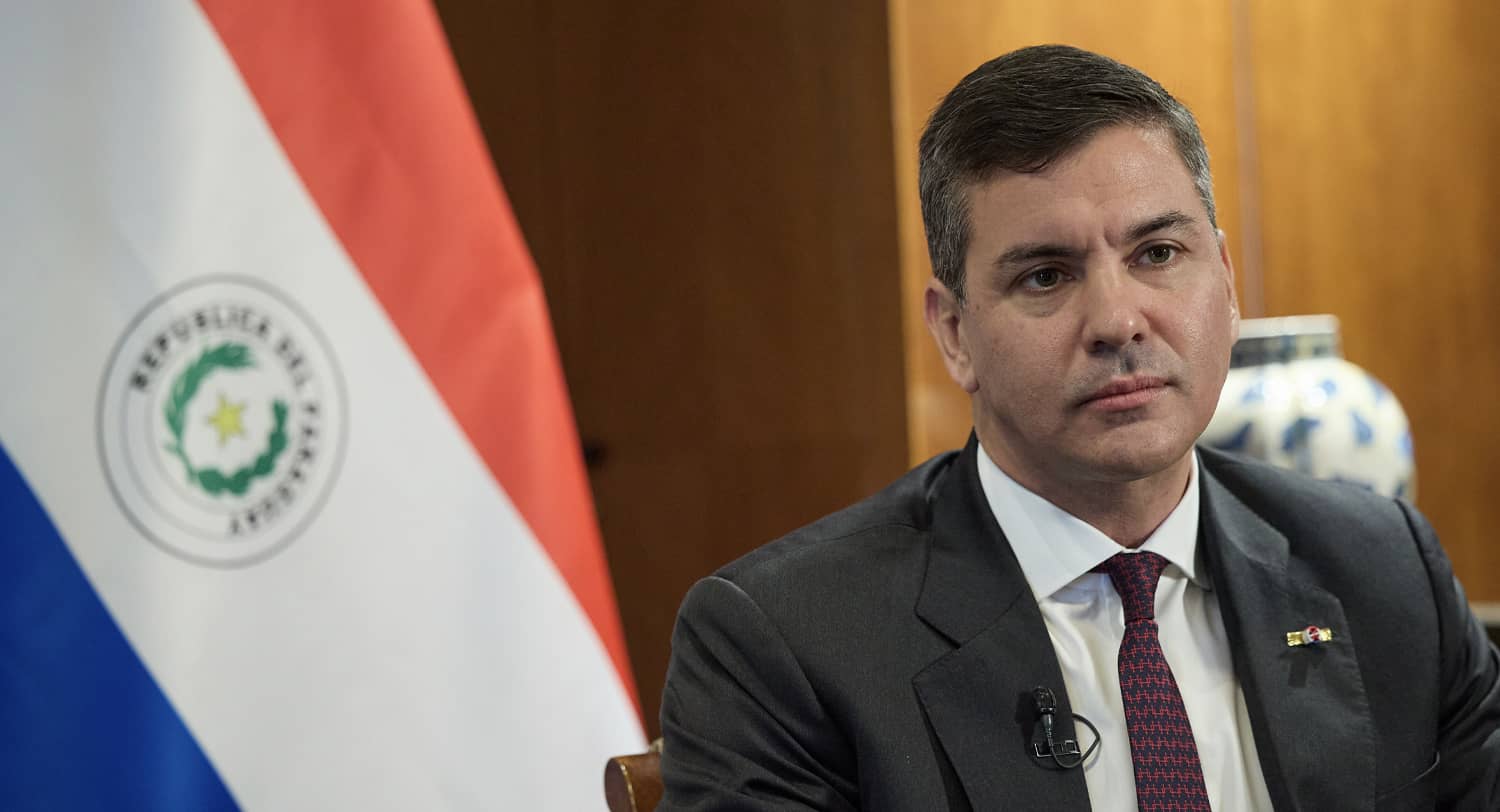Paraguay is at a hinge moment in its history, with the election last year of a new president. With small steps, the United States could make a significant difference. This collaboration would both enhance Paraguay’s development and its status as a US ally. The country’s biggest constraint, however, is corruption. and more engagement from the US and new offers of deeper partnership in exchange for governance reforms may be the format for enabling change in Paraguay.
Political Development
A landlocked nation of around 6.1 million people, Paraguay went to war in the mid-19th century with its neighbors – Argentina, Brazil and Uruguay – resulting in the loss of over 50 percent of the country’s adult males. The demographic imbalance led to significant social distortions and it took over a generation to reestablish an even ratio between the sexes.
An era of dictatorships, including a nearly 40-year regime under Alfredo Stroessner in the 20th century, ended in 1989. For the past 35 years, Paraguay has maintained a fragile democracy. The center-right Colorado Party has dominated politics for 100 years, similar in tenure to the Institutional Revolutionary Party in Mexico or the Liberal Democrats in Japan.
Under President Santiago Peña, Paraguay has arguably assembled its most capable cabinet in history, recently experienced substantial economic growth, and maintained relative political and economic stability. Paraguay is a country of serious economic potential; it could be a “mini Brazil.”
As allies of the United States, Paraguayans often feel taken for granted or overlooked, despite a record of support for US diplomatic priorities. Paraguay is the only country in South America that maintains diplomatic relations with Taiwan. In contrast to Brazil, Venezuela and other South American countries, it has been a vocal supporter of Israel, including in the current war in Gaza, and a reliable ally of Ukraine in the United Nations. Their country might get more attention from the United States, Paraguayans lament, if it were seen as more of a “problem country.”
Economic Potential
Strategically located in between Santiago, Buenos Aires, and Sao Paulo, Paraguay has the potential to become a regional hub for connectivity and technology. This strategic significance, combined with its economic potential, makes it a country that the United States cannot afford to overlook. Major drivers of economic growth in Paraguay include the agricultural, retail and construction sectors. There is considerable room for growth in the economic relationship; US-Paraguay bilateral goods trade was $3 billion in 2023, compared to the US-Colombia bilateral goods trade of more than $39 billion.
The country possesses several sources of “green” energy. It can leverage enormous electricity surplus for artificial intelligence and other technological activities. The Itaipu and Yacyreta hydroelectric dams are among the largest in the world, generating substantial surplus energy. Itaipu alone produced 79 million MWh of energy in 2019 and set a world record in 2016 with an annual production of 103 million MWh. This hydroelectric capacity offers a unique advantage for tech companies needing sustainable and cost-effective power supply, particularly for energy-intensive industries like data centers and AI development.
The global market for green hydrogen is expected to grow significantly, driven by international commitments to reduce carbon emissions. Paraguay’s ability to harness electricity and produce green hydrogen at scale could attract investments and position the country as a major exporter of this clean energy source. Another Paraguayan export, fertilizers, can also reduce fossil fuel use, enhance food security in the region, and reduce reliance on Russian-manufactured fertilizer.

American Steps To Strengthen the Relationship
The United States should consider steps in four areas.
Trade and investment. In exchange for governance reforms, offer to negotiate a free trade agreement. In addition, consider making Paraguay a recipient of the trade benefits that Congress proposed for Ecuador through the IDEA Act. If the bipartisan Americas Act becomes law, encourage Paraguay to meet its criteria. Open the US market to Paraguayan beef, conditioned on meeting international standards, as evidenced by its success in the Canadian market.
In order to increase business and tourism, establish a direct flight between the US and Paraguay’s capital city, Asuncion. It is easier to travel from Asuncion to Europe than to the continental United States. Paraguay’s airport is International Air Transport Association (IATA) certified, eliminating safety concerns.
Military and Law Enforcement. Bolster existing anti-narcotic and counterterrorism support by helping Paraguay acquire US radars and military aviation, or suitable technologies from other allies, in order to combat drug trafficking and corruption.
Education. Encourage US universities to set up campuses in Asuncion to strengthen educational ties and provide opportunities for development, building on longstanding ties with the universities in Kansas.
Aid. As a supplement to the modest aid program, initiate micro, small and medium enterprise loan programs to increase productivity. Offer credit in sectors with greater responsibilities and support alternative financial inclusion initiatives, such as the development of fintech services.
Two Key Challenges
Paraguay suffers from the perception, and reality, of corruption, including in public procurement. Paraguay is also a transport hub for drugs and the production of marijuana. But it is not unique in this regard nor has the level of criminality merited the US reaction. The US has sanctioned for corruption the former president, Horacio Cartes, head of the Colorado party and political sponsor of current President Peña. The US works with several countries in Latin America, the Middle East, and Eastern Europe that are equally or more corrupt than Paraguay, yet rarely sanctions these other nations or individuals. The US might consider what “asks” or reforms it would like to see happen in return for lifting sanctions against Cartes.
Additionally, Paraguay suffers from a human capital deficit. As noted above, US universities might consider opening campuses in Asuncion or other cities, with the US government potentially playing a brokering role in this endeavor.
Conclusion
Paraguay may eventually be tempted to recognize Communist China over Taiwan, given Chinese efforts to influence the country. During COVID-19, Paraguay almost recognized China in exchange for low-quality Sinovac vaccines, owing to a vaccine vacuum left by the West.
The United States should decide if it wants to take additional actions to collaborate with Paraguay in spite of the corruption problems. If we do not take these steps, we may hasten the day that Paraguay turns away from its traditional ally, Taiwan. We should take additional steps now, perhaps linking these steps to actions on the corruption front to help Paraguay develop its immense potential.

